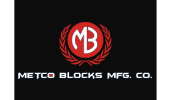Solid Concrete Blocks
Solid Concrete Blocks Supplier
We Are One Enterprises: our company is the best Dealers and supplier of solid concrete blocks in India.We supply superior quality, long-enduring solid concrete blocks to our clients. Joining the lot as a premier solid concrete blocks Dealers, the company values its role of providing quality and long lasting solid concrete blocks for various construction purposes in the country. Several of their block making facilities are modern to guarantee that every solid concrete blocks laid down meets these certain standards they become a favourite amongst builders and developers. In these aspects, We Are One Enterprises, through its drive to be innovative and sustainable, enhances its solid concrete blocks despite being rigid, to also be ecofriendly. When a customer selects We Are One Enterprises, he or she does so with the guarantee that the Solid concrete blocks produced are strong and long-lasting for any desired construction.

What Are Solid Concrete Blocks
Solid concrete blocks, which are highly heavyweight and formed by aggregate, are primarily utilized in construction projects. They’re sturdy and give structures a lot of solidities. These solid blocks are ideal for large-scale projects such as force-bearing walls. They’re compared to bricks that come in big sizes. As a result, constructing concrete masonry takes less time than brick masonry.
Features
- Weather Resistance: -Exceptional weather resistance due to reduced water absorption. Capable of withstanding bad weather.
- Low Breakage and High Strength: -Three times stronger than conventional clay bricks with consistency in strength.
- Low Wastage: -Zero Wastage while transporting, usage & handling.
- Time Saving: -Saves both time and Labor Cost
Parameter | Results |
Dimensional Accuracy | +- 2mm |
Compressive Strength | 6mpa+ |
Water Absorption | <10% |
Density | 1800 - 2400 Kg/cum |
Weight | 14-32 Kg |
Uses of Concrete Blocks:
- Concrete Blocks are a great option for partition walls because they are quick and easy to install. The inclusion of steel reinforcement adds to the structure’s strength.
- Exterior and Interior Load-bearing Walls, Partition Walls, Panel Walls, and Boundary Walls are common uses for Hollow Concrete Blocks.
- Solid Concrete Blocks are perfect for Chimney and Fireplace building, but they also work well for Non-load Bearing Walls and Garden Walls.
- Concrete blocks are also used in a variety of smaller landscaping projects. Many Outdoor Furniture & Patio ideas, for example, include Outdoor Seating, Decorative screens, Outdoor Bar, Flower Bed, and many others.
- Concrete blocks can cover stored commodities from the effects of changing weather. It’s no surprise that engineers prefer it to construct Material Bins.
Advantages of Concrete Blocks:
- The reduced wall thickness due to narrower Concrete Blocks than a traditional brick masonry wall makes the space larger by increasing the carpet surface.
- Concrete block building is more systematic, faster, and stronger than brick masonry because of the vast size of the blocks.
- Better thermal insulation is provided.
- It effectively absorbs sound and protects the interiors from noise pollution. Using concrete blocks provides additional fire protection.
- Protects precious agricultural land that is extensively mined to produce clay bricks.
- Individual pieces can be manufactured to a larger customized size and shape, allowing for a quick building cycle turnaround.
- Concrete Blocks, unlike traditional bricks, have a consistent size that lowers the need for plaster, making them a more cost-effective solution. The mortar consumption rate is lower than in traditional masonry construction, but the overall strength of the structure is increased.
Disadvantages of Concrete Blocks:
- The expense of constructing a residence out of concrete blocks is significantly higher.
- Some of the blocks may need to be cut to reach critical systems.
- Concrete block homes aren’t usually attractive from the outside.
- Over time, concrete blocks may be subject to water seepage.
- Some regional preferences may not be compatible with this material.
- Windows and doors can easily detract from the environmental benefits.
Sizes
390*190*90
390*190*100
390*190*125
390*190*140
390*190*150
390*190*190
Brand Associated



